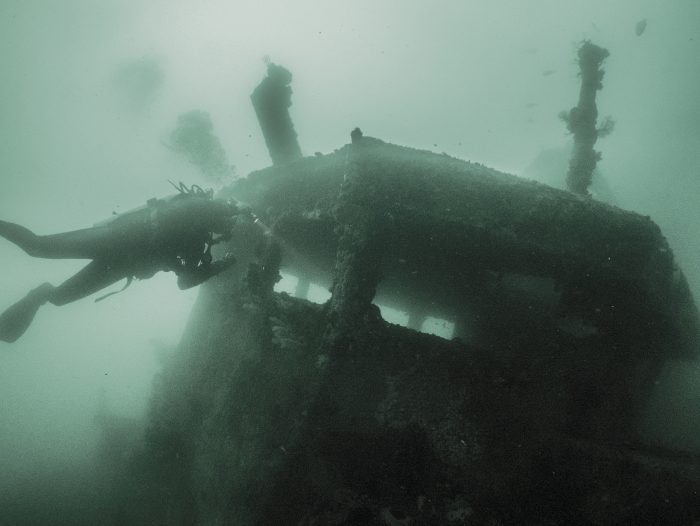As I left the land of the kangaroos and entered the islands of the Kiwis, I channelled my inner Hobbit. My journey in New Zealand was centred around seeing what was happening to rid the oceans of an evil plague, more evil than Mordor could summon. Plastic pollution in the seas.
The issue of plastic is finally being widely broadcasted on mainstream media causing quite the rallying of opinion to start to make a change and to clean up our seas. I’ve always participated in beach cleans to tidy away the anaesthetically pleasing pollution of coastlines. But what about the plastic that hasn’t yet been washed up onto the beaches?
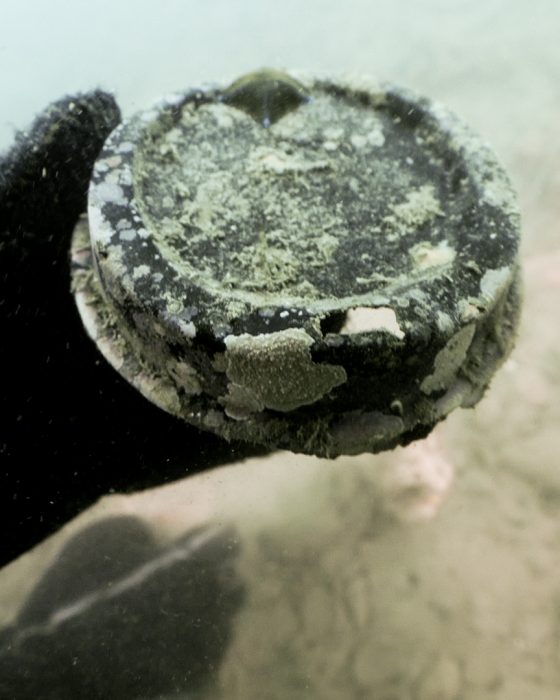
The first stop on my journey was to join Ghost Fishing New Zealand based in Wellington. This division of the Ghost Fishing global network joins a band of divers who target the troublesome waste that is unseen below the surface of the water. Their main mission, alongside generic underwater clear ups, is to clear out fishing gear that has been abandoned to the seabed or entangled upon shipwrecks.
Over 1,250 kilometres (780 miles) of nets are lost or discarded every year. Modern nets made from monofilament and plastics are highly durable and consequently will take centuries to degrade. So, when left behind they will carry on fishing, without a fisherman to haul them in, and indiscriminately kill marine life.
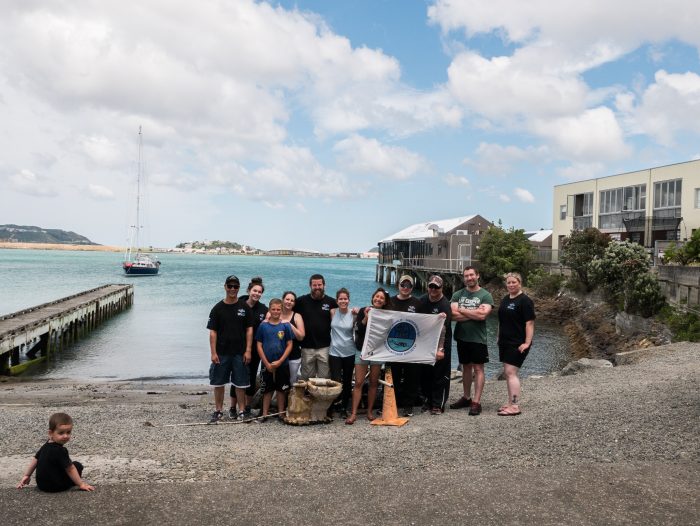
The New Zealand team, conducted by Rob Wilson and Serena Cox, recently were awarded Wellingtonian’s of the year in the environment category – A worthy recognition of what they have been able to draw attention to and start to combat in New Zealand. I couldn’t wait to join the crew and participate in the cause!
The fantastic Rob had organised reconnaissance and clear up dives during my time there. We scoped out the South Seas, a Naval Minesweeper wreck that sank in 1942, with help from Underwater Solutions. Descending onto the wreck we pushed through a thick layer of salps in the water column and as the visibility decreased the deeper we got we only saw the wreck when we physically bumped into it. Even though we couldn’t see past a meter, we were lucky enough to not find the wreck swamped in nets and instead covered in encrusting life with shadows fish swimming in the gloom. Yet, there were still many recreational fishing lines entangled over the wreck, which the team planned to come back to clear up.
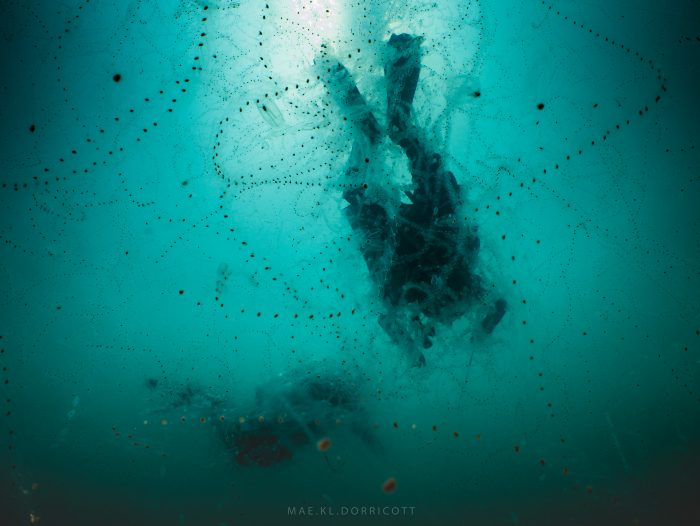
It was inspirational and warming to see the full operation of a NZ Ghost Fishing clear up at Soi Wharf when divers, free divers, kayakers, marine biologists, shore crew and budding toddlers with buckets gathered at the water’s edge to be briefed about the clear up.
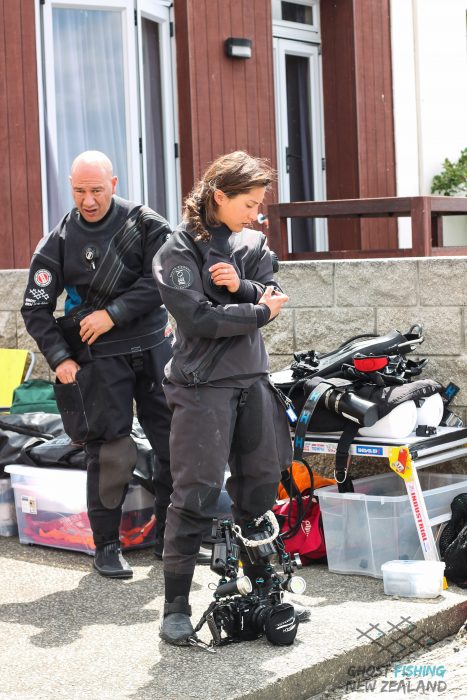
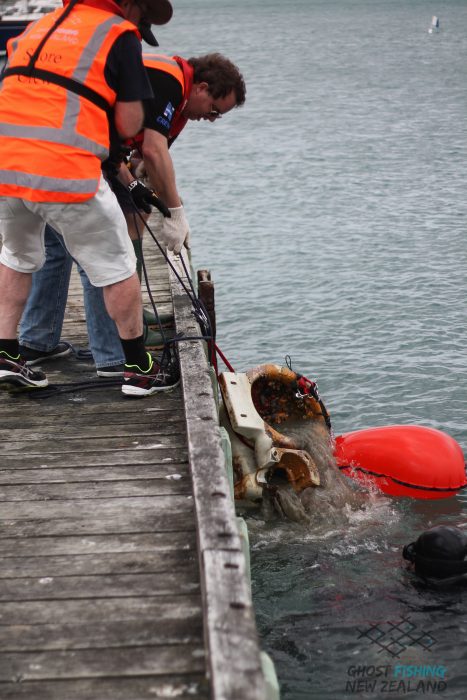
The divers would locate and lift the trash out, pass it onto the free divers or kayakers to ferry to the shore crew who pull out the trash and sort through it. Just from one hour in the water we gathered tyres, two porcelain toilets, hoses, ropes, bottles, cans, plastic bags just to name a few. The marine biologists would then salvage any living creatures left on the rubbish and send them back to their home.
To see so many people spurred together to heave out heaps of trash from their local waterside was refreshing. This impassioned community, evolving from just a few divers devoted to cleaning the waters of Wellington, is movement with momentum that is getting larger and starting to spread throughout New Zealand.
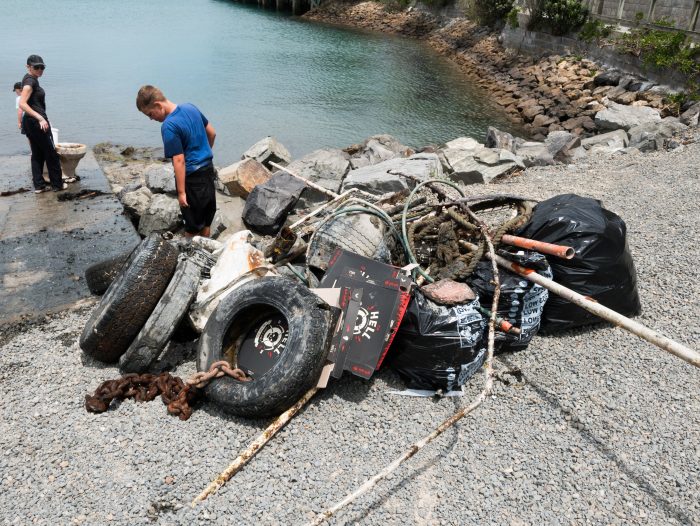
.Clearing up the sea and coastline is brilliant and well needed. But let’s face it, we need to stop putting the plastic there in the first place. 8 million metric tonnes of plastic goes into the oceans, EVERY YEAR. That’s an awful amount of plastic, and a lot of that is single use plastic – plastic from items we use once and then throw away. From MacDonald’s in the UK alone, a staggering 3.5 million plastic straws are used daily.
The next stop on my New Zealand saga was to join a bamboo bike named Sunny and the motivational Libby Bowles who rides it. Her and Sunny are cycling around New Zealand to spread the word about cutting out single use plastic. Previously a marine scientist, she is enthused by the marine environment, but just like me, is a little miffed off by the amount of plastic in the sea. What’s the point in trying to save animals from fishing, when they’re just going to suffer from plastic pollution? As a teacher Libby is targeting the younger audiences by travelling by bike, school to school conducting talks about the issue. From November to December, only a month into her 5-month expedition, she had already talked to over 2000 school children.
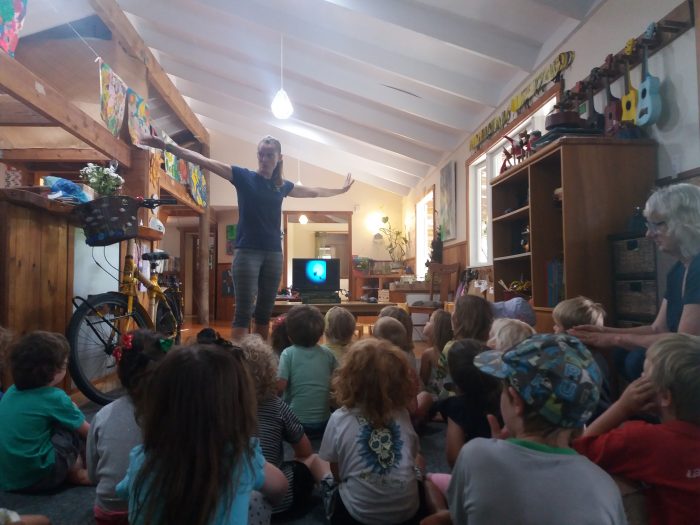
A little anecdote she would tell was about one of her super heroes, a 5-year old boy that sat in her talk and who ended up being in the queue in front of her in a café later that day;
“I don’t want a straw in my drink please!” he said to the man behind the counter.
“Why’s that?” Asked the waiter.
The boy replied with anger and passion, “Because I like sea turtles and I don’t want my straw to end up in the sea and kill a turtle!” Due to his unplanned public display of anti-single-use-plastic, the following 4 adults in the queue behind him, also asked the waiter to not give them a straw either.
Producing little advocates like these is Libby’s mission. So, I swapped the tanks for two wheels, unpacked my mask and snorkel and instead packed a tent and sleeping bag as I joined Libby for a week of adventure invigorating the next generation of plastic ninja warriors!
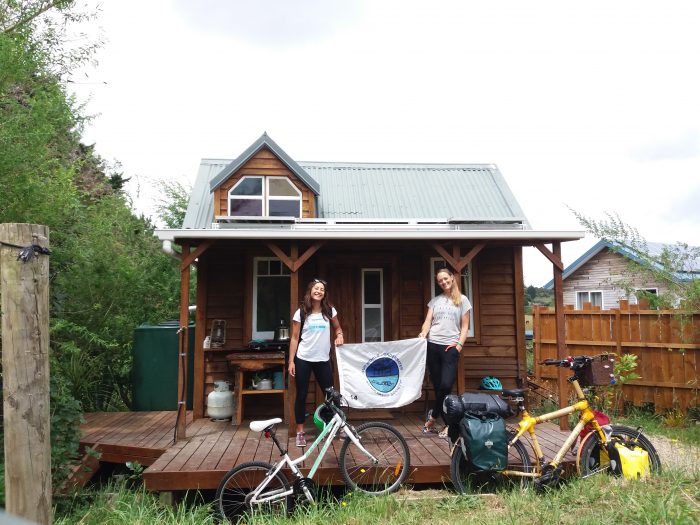
I won’t lie, I thought I was going to have to bail out on the first hill. My body has been used to floating about in the ocean, not cycling up the never-ending, rolling hills of New Zealand. But after the first day I knuckled down, pedalled hard and ran through all the empowering notes written around Libby’s bamboo bike – “I want to see what happens if I don’t give up.” and “Oh Yes I Can!”.
It was so rewarding getting to the top of the hills, even if you knew there was another hill coming on the horizon because the downhill ride was brilliant and reaching the schools to see Libby do her thing was what it was all about. We weren’t riding for the glory but for spreading awareness of an issue we both cared about deeply.
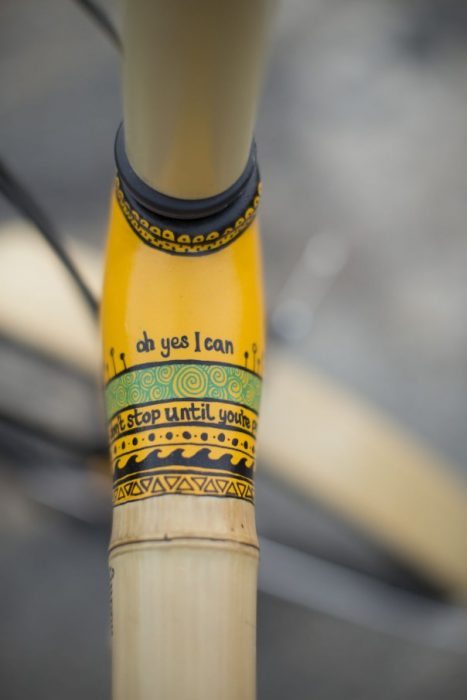
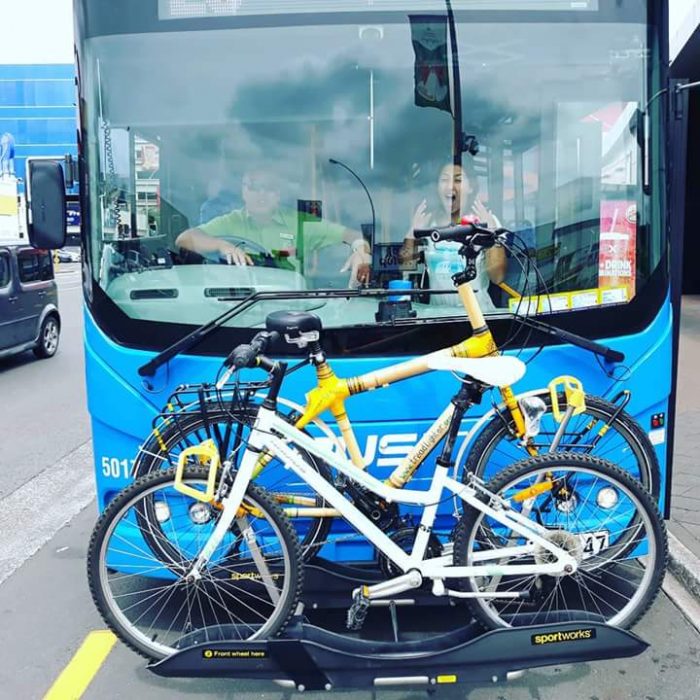
The children were amazing too, asking questions and suggesting solutions they knew of. Granted, we were in one of the hippiest areas of New Zealand where the towns had signs promoting the fact that they were plastic free! It’s such a relief to see communities recognising how bad plastic is. With the younger generations already knowing how to solve the issue I have been injected with spirit and hope that this tide will eventually swing.
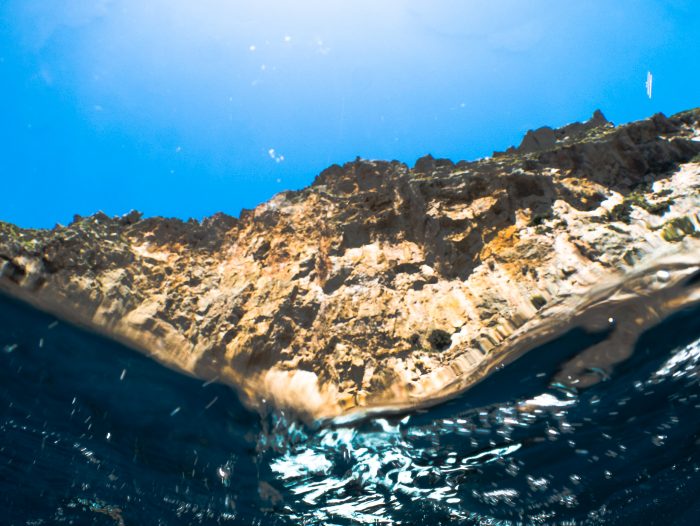
To end my tour in the land of kiwis and hobbits I found myself at one of the top dive sites in the world, The Poor Knights. Thanks to Dive! Tutukaka I jumped into waters that are acclaimed as one of Jacque Cousteau’s favourite places to dive. These group of volcanic islands are hugged by the East Australian current. The current brings in warm water and nutrients that supports layers of fish in such abundance it caused a glow over the reef. Cory, my dive guide and buddy would always laugh when he checked up on me as I had the largest smile on my face from pure awe.
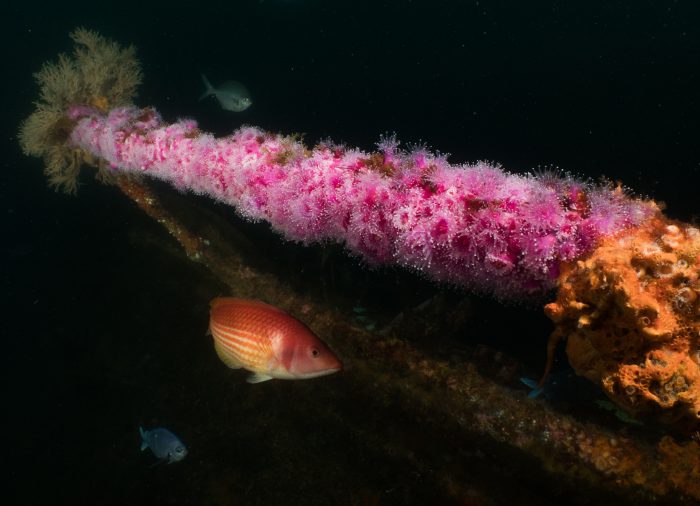
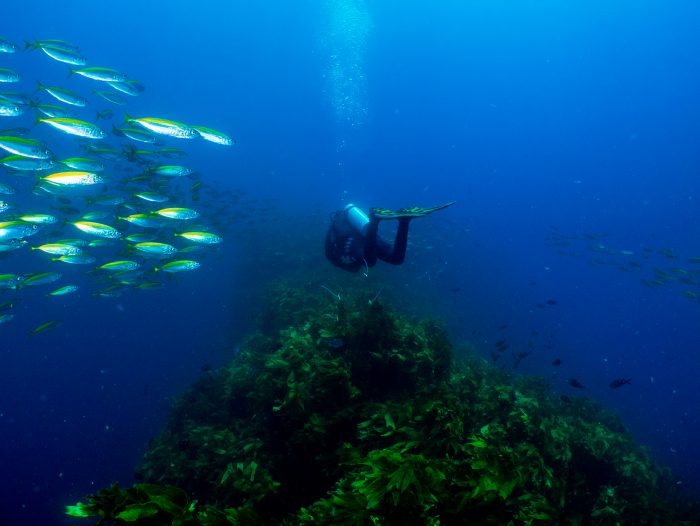
Below the cloud of fish, luscious fronds of kelp created a magical underwater forest to explore. Rocky boulders were encrusted with sponges, corals and colour that looked like a painter had splattered his palette all over the reef. The best moment was at a dive site named, Sugar loaf. As Cory and I turned a corner of the reef wall, a huge school of King fish swarmed out of the murky blue and circled us. There must have been at least 100 fish, each a meter-long swimming at top speed around the both of us before they darted off.
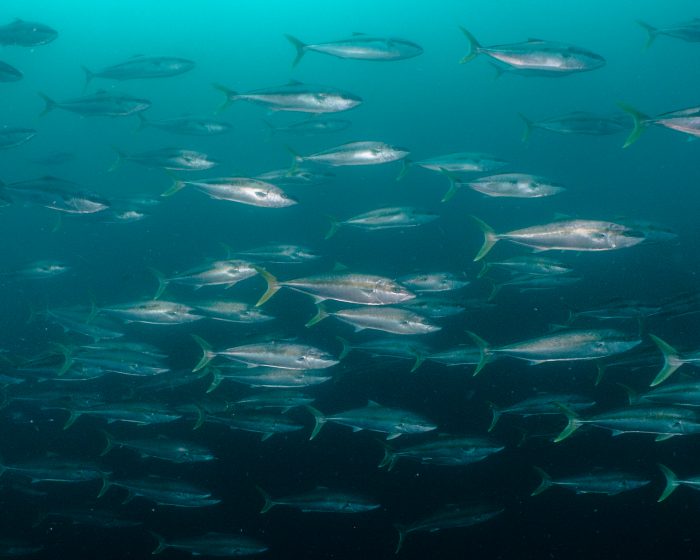
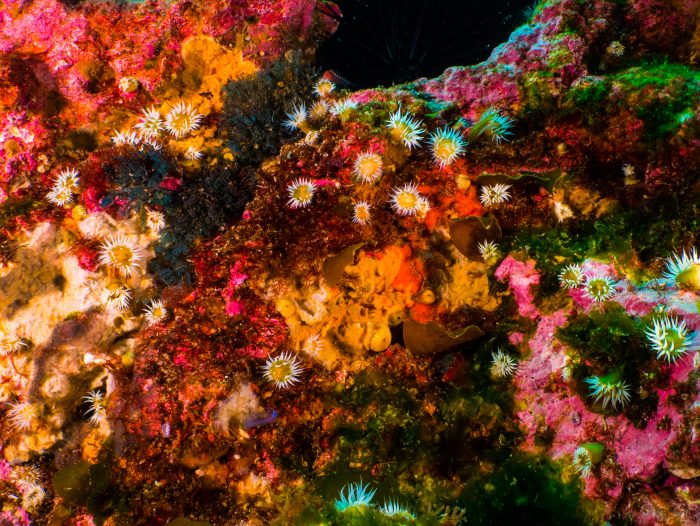
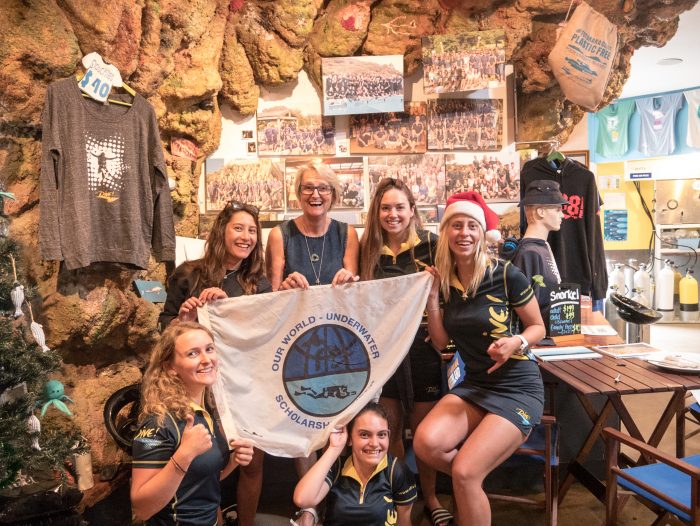
My dives with Dive! Tutukaka, was the perfect way to complete my trip that had been focused on remembering how the oceans should look like and be kept like. A magical environment thriving with life. The health of the oceans depends on us, and we depend on it as a healthy environment to survive.
If you want to find out ways on how to do your part in cleaning the seas of plastic visit the Marine Conservation Society’s website. They have tonnes of hints, tips and events you can get involved with!
Thank you to Pete Meseley for all of your support throughout my time in New Zealand and for lending me Hannah’s Bike! As I said there, you are a legend. Also, Rob Wilson thank you for having me and organising all the adventures around Wellington! To Libby Bowles, I’m so grateful I was able to join you on your incredible journey, I wish you the best of luck for the rest of your mission. And last but not least thank you to Kate Malcolm, Dive! Tutukaka and Tutukaka Holiday Park for hosting me.
